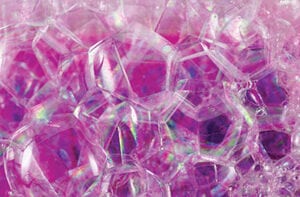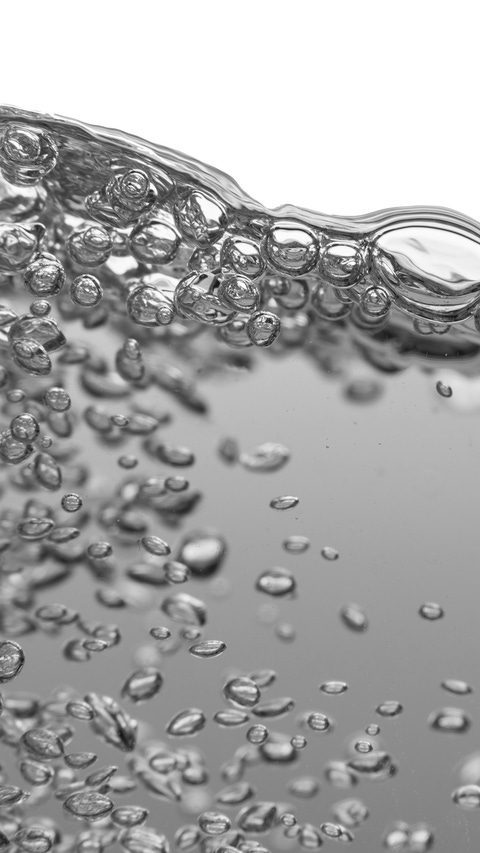The Function of Defoamers in Enhancing Item Quality and Performance
Defoamers serve as vital ingredients that mitigate this issue, guaranteeing smoother production operations while enhancing the aesthetic and practical characteristics of the last products. The choice of the suitable defoamer can be crucial to attaining ideal results, elevating important inquiries regarding formula compatibility and performance metrics that warrant further expedition.
Comprehending Defoamers
Understanding the duty of defoamers is important for keeping item top quality across numerous markets. Defoamers are chemical additives developed to stop the formation and decrease of foam in liquid systems, which can adversely impact processes such as blending, loading, and surface area tension. Lathering can result in inadequacies, product problems, and jeopardized visual charm, making defoamers an essential part in manufacturing procedures.
In industrial applications, defoamers assist to boost product consistency and stability. For instance, in the paint and finishes sector, foam can hinder the application procedure and the last coating. In food and beverage production, extreme foam can hinder bottling and product packaging efficiency. The efficient use of defoamers not only guarantees smoother production procedures however additionally adds to premium item efficiency.
Furthermore, the option and formula of a defoamer have to line up with certain application needs, such as compatibility with other ingredients, performance under varying temperature level and pH problems, and prospective governing restrictions. Eventually, understanding defoamers' features and their importance in various solutions is crucial for enhancing production and making certain the highest possible quality end products.
Types of Defoamers
Defoamers can be categorized right into several kinds based upon their make-up and mechanism of activity. The primary types consist of silicone-based, non-silicone natural, and inorganic defoamers.
Silicone-based defoamers are among the most reliable, primarily because of their capability to spread rapidly on the fluid surface area and interrupt foam development. Their special chemical framework permits remarkable security, making them suitable for high-temperature applications and atmospheres with varying pH degrees.
Non-silicone natural defoamers, commonly made up of fatty acids or all-natural oils, are valued for their biodegradability and lower poisoning. These are usually made use of in food and beverage applications where safety and security and environmental impact are vital.
Inorganic defoamers, which include materials like talc or calcium carbonate, act by enhancing the thickness of the liquid, consequently decreasing foam security. They are typically made use of in commercial procedures where compatibility with various other products is not a problem.
Each type of defoamer has unique benefits and limitations, permitting tailored remedies relying on the particular lathering concerns come across in different applications. Understanding these distinctions is critical for optimizing performance and attaining preferred item high quality.
Applications Throughout Industries
Many industries utilize defoamers to enhance item high quality and operational efficiency. In the food and beverage industry, defoamers are important in processes such as developing and milk manufacturing to stop foam formation, which can result in ineffectiveness and product incongruity. By managing foam, producers can make sure far better return and a more consistent product.
In the pharmaceutical sector, defoamers play an essential duty in the solution of fluid drugs, where excessive foam can impede blending and exact application. Their use helps preserve the integrity of the formulas and helps with smoother production procedures.
The paint and coatings industry additionally relies upon defoamers to improve the efficiency of items during application. By minimizing foam, these ingredients make certain a smoother finish and enhance the visual top qualities of the end product.

Advantages of Making Use Of Defoamers
While the application of defoamers varies throughout markets, their advantages constantly boost product quality and process effectiveness. One considerable benefit is the decrease of foam development during manufacturing procedures, which can otherwise bring about production hold-ups and incongruities in item quality. By lessening foam, defoamers enable a smoother flow of materials, promoting extra reliable operations and lowering the probability of devices malfunctions.
Furthermore, making use of defoamers can boost the appearance and texture of final items. In industries such as finishings, paints, and look at more info food handling, too much foam can jeopardize the aesthetic aesthetic appeals and total high quality, while the suitable defoamer application makes certain a consistent surface and preferable characteristics. In addition, defoamers can add to set you back financial savings by reducing waste during manufacturing and maximizing the usage of resources (defoamers).

Picking the Right Defoamer
Choosing the appropriate defoamer is crucial for maximizing manufacturing procedures and guaranteeing item quality. The choice of defoamer affects not just the performance of foam control however likewise the general efficiency qualities of the last product. Factors to think about include the kind of application, the chemistry of the formula, and the ecological conditions under which the item will be utilized.
Different industries may need particular defoamer types, such as silicone-based, natural, or polymeric defoamers. Understanding the compatibility of the defoamer with the main ingredients is necessary to avoid adverse reactions that might compromise product honesty. Additionally, the defoamer's effectiveness in various temperature levels and pH degrees have to be reviewed to guarantee consistent efficiency.
Evaluating the defoamer in small-scale applications can offer valuable understandings Going Here into its efficiency and viability. Factor to consider of regulatory conformity, specifically in food, pharmaceuticals, and cosmetics, is extremely important in selecting a defoamer. Eventually, a detailed analysis of these elements will result in the selection of a defoamer that not only regulates foam effectively however additionally improves the high quality and efficiency of the final product.
Final Thought

To conclude, defoamers are vital ingredients that dramatically improve item high quality and performance across numerous sectors. By properly minimizing foam development, these agents not only enhance functional performance yet additionally contribute to the visual and useful integrity of products. The calculated selection and application of defoamers bring about set you back financial savings, enhanced source use, and boosted client satisfaction. Generally, the importance of defoamers in industrial procedures can not be overemphasized, as they play our website a crucial role in achieving top quality and constant end results.
Frothing can lead to inefficiencies, item problems, and jeopardized visual charm, making defoamers a critical part in producing operations.
